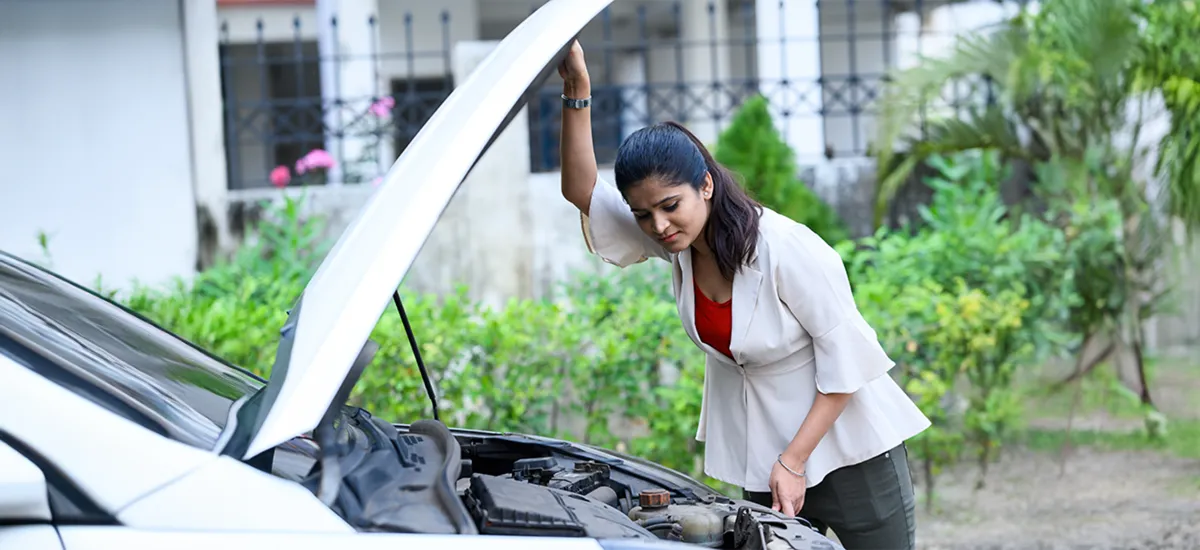Transferring vehicle ownership in India can seem daunting. Whether you're selling your car or motorcycle or inheriting a vehicle, understanding the steps to transfer ownership is crucial. From obtaining the necessary paperwork to navigating the intricacies of state-specific regulations, this article provides a comprehensive guide to changing ownership of a car and other vehicles.
This guide explains the various aspects of transferring vehicle ownership in India. It also provides information about the necessary documents, step-by-step procedures, and essential considerations for a smooth transfer process. Whether selling, inheriting, or gifting a vehicle, you will learn how to manage the legal requirements and ensure a seamless ownership transition.
Process of vehicle ownership transfer within the same state
In case both the purchaser and seller reside within the same state, these are the steps to be followed on how to transfer car ownership or any other vehicle:
· Obtain Forms 29 and 30 directly from the respective state's Regional Transport Office (RTO).
· Complete Forms 29 and 30 accurately, ensuring the seller's signature is affixed where required.
· Present the duly filled forms along with essential documents such as the registration and car insurance certificates and address proofs of both parties to the concerned RTO.
· Process the payment for the vehicle ownership transfer online fees per the RTO's regulations.
Process of interstate vehicle ownership transfer
If the seller and buyer hail from different states, here is the procedure followed to transfer vehicle ownership.
· Acquire a No Objection Certificate (NOC) from the RTO where the vehicle is registered.
· Procure Form 28, Form 29, Form 30, and Form 33 from the pertinent RTO in the buyer's residing state.
· Thoroughly complete and sign Form 28, Form 29, Form 30, and Form 33 in collaboration with the vehicle's seller.
· The duly filled forms, along with the registration certificate, car insurance policy certificate, pollution under control (PUC) certificate, and address proofs of both parties, should be presented to the RTO in the buyer's residing state.
Process of vehicle ownership transfer when the owner dies
In case of the demise of a vehicle owner, adherence to the steps listed below is necessary for a four or two-wheeler ownership transfer online.
· Obtain the owner's death certificate from the appropriate authorities.
· Secure a legal heir or succession certificate sanctioned by a court of law.
· If the vehicle was procured through a loan, acquire an NOC from the financier.
· Complete Form 31, detailing the transfer of ownership.
· Compile the application and the requisite documents and submit them to the RTO.
What is the vehicle registration process in India?
Whether you're a new vehicle owner or looking to re-register an old vehicle, here's what you need to do to complete the vehicle transfer online.
· Complete Form 29 and Form 30, furnishing all required details accurately.
· Submit the filled forms to your local RTO.
· Await approval from the relevant authority.
· Upon receiving preliminary approval, your application will undergo final scrutiny by the regional transport officer.
Documents required for vehicle ownership transfer within the same state
Below are the essential documents necessary for transferring the RC of a vehicle within the same state:
· Valid RC of the vehicle.
· Current PUC certificate.
· Valid insurance certificate.
· Completed Form 29 and Form 30.
· NOC from the original RTO, if applicable.
· Original invoice of the vehicle purchase, if available.
· Legitimate identity proof of both the buyer and seller, including an Aadhaar card, passport, PAN card, and voter ID card, among others.
· Valid address proof of the buyer and seller, such as an Aadhaar card, passport, utility bill, etc.
· Recent passport-sized photographs of both the buyer and seller.
· Receipt of road tax payment.
· Certificate of fitness if the vehicle has surpassed two years of age.
Process for vehicle ownership transfer from one state to another
Ownership transfer through a regular sale necessitates specific documents and procedures. Here's what you'll need and how to proceed.
Required Documents
· Vehicle Registration Certificate
· PUC certificate
· Insurance certificate
· Completed Form 29 and Form 30
· NOC from the original RTO
· Valid identification proof of both buyer and seller
· Valid address proof
· Passport-sized photographs (seller and buyer)
· Road tax receipt
· Fitness certificate of the vehicle
Application Process
· Fill out Form 29 and Form 30.
· Submit the application and the required documents to the RTO, paying the applicable fee.
· Ensure the vehicle undergoes inspection by the Motor Vehicle Inspector (MVI).
Transferring vehicle ownership in India requires careful attention to detail and adherence to specific procedures, which vary depending on the circumstances. Understanding the various aspects of the process and staying organised will help individuals transfer car ownership online smoothly and efficiently. Remember, each state may have its regulations, so it's crucial to consult with the respective RTO for personalised guidance.
























